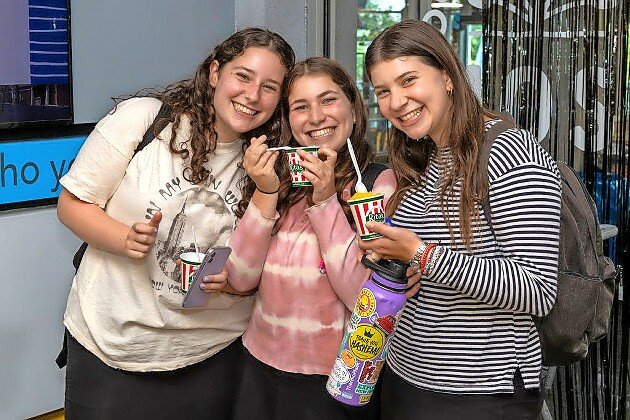SAR renews mission: Let's be really nice!
The principal of the Salanter Akiba Riverdale High School wants his school to vibrate with a feeling of “nice.”
Working to raise the profile of mitzvot ben adam l’chavero (between people) at SAR, Rabbi Jonathan Kroll is launching a campaign involving specific actions of character, and introducing the concept of “The Nicest Kids.” The administration and faculty hope that the phrase will be sticky, so that kids will understand and act on what’s expected of them.
Rabbi Kroll wants “to create an environment where every student and every person we interact with [inside and] outside of the building looks at us and says, ‘Wow! SAR has the nicest kids’!”
“We’re not taking for granted that it’s obvious what it means to be nice,” he explains. “We’re using our advisory slots and other initiatives around school to really focus on how kids are treating each other with kindness. Being the nicest kids can’t just be a slogan, we need to take action, and do things that will shape our identity.”
Further, SAR is asking its students to engage the world “with humility and openness to G-d’s creations,” he said. Humility is a character trait that is foundational to learning and treating others with respect.
In advisory sessions, lessons will revolve around looking directly at people who are speaking, saying thank you to teachers, greeting the maintenance staff, cheering positively and respectfully at sports games and more.
“The nicest kids initiative is our way to further impress upon our students the value of character development and interpersonal interactions,” says Yoni Mandelbaum, Health and Wellness coordinator, who oversees the advisory program.
“Our goal is to use the advisory space to create conversation about very specific behaviors that are elements of being nice people that can have an impact on the classroom environment, the larger school culture, and beyond. Intentionally using advisory as one vehicle for this initiative, will hopefully increase awareness about potential positive bein adam l’chaveiro moments that we encounter every day.”
Rabbi Kroll cited two visible ways to implement niceness: When walking in the school, stop looking at your phone. He said that when walking through the building, it’s also important to recognize people by name.
“It makes people feel great when you recognize them as individuals,” he says.
As an added incentive, the school is holding a contest in which students who learn the names of every student and faculty member in the school win prizes, including free lunch, SAR swag and more.






